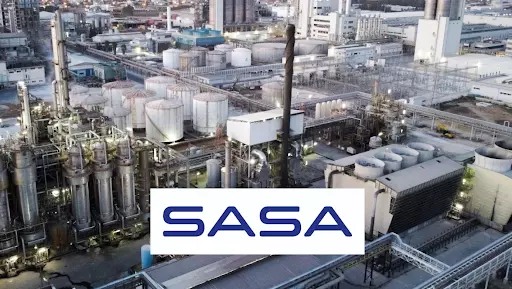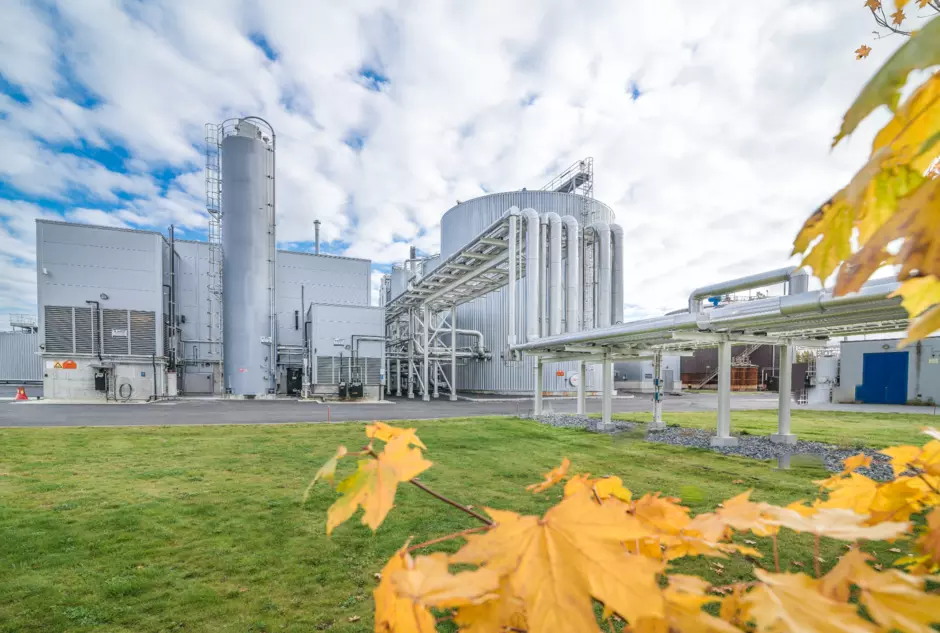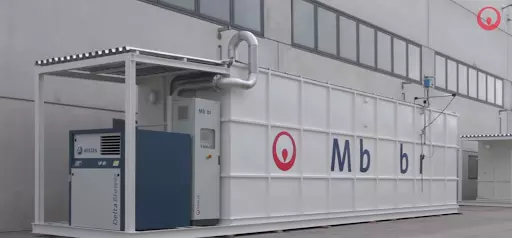In Veolia, we are committed to help our clients increase their water reuse. Sasa Polyester Sanayi A.S., one of the world’s leading manufacturers of polyester, entrusted us to build a wastewater reuse plant with a capacity of 1500 m3/h. The Wastewater treatment plant is designed as a centralized wastewater facility to manage all the different effluents and other intermittent flows. This solution will save groundwater resources because cooling towers will be fed by reclaimed wastewater instead of well water.
SASA had already awarded to VWT Turkey, in 2021, the wastewater treatment plant of its first PTA facility in Adana (Turkey). This wastewater treatment plant included anaerobic treatment of both the Purified Terephthalic Acid (PTA) and Dimethyl Terephthalate (DMT) processes. In 2022, as a continuation within the same investment program, VWT Turkey has been awarded for the Reuse Plant which will further treat the effluent of the wastewater treatment plant to produce cooling tower make-up water and therefore reduce the pull on the local fresh water resource.

An ambitious investment program in the petrochemical sector in Turkey
SASA Polyester Sanayi A.Ş, one of the biggest players worldwide on polyester staple fibres, filament yarns, etc, is carrying out a very ambitious investment program in the petrochemical sector in Turkey. For this reason, the company signed an agreement with INVISTA now Koch Technology Solutions (KTS), a fibre, resin and intermediates company, for the establishment of a new PTA (Purified Terephthalic Acid) factory in Adana.
Turkey is the third importer of PTA in the world, after the United States and Germany. This project will be the first PTA facility to be built in Turkey, and it will help to reduce the deficit and the imports of the country in this very important raw material. The EIA report of the project, expected to cost close to USD 1 Billion, was prepared by MGS Project. Under the proposed project, 1,580,000 tons of PTA will be produced annually by using paraxylene and acetic acid as raw material. PTA is purified via hydrogenation of crude terephthalic acid and widely used as the main raw colourless solid material in the manufacturing of various petrochemical products. A high strength organic PTA wastewater is generated from the major sources such as the oxidation and purification processes during the PTA manufacturing procedures.
Biothane and AnoxKaldnes technologies to treat the effluent and reuse it for cooling tower make-up water
VWT Turkey is currently executing the anaerobic WWTP’s (PTA & DMT) which include the Biobed EGSB process developed by Biothane to treat complicated and higher strength organic wastewater such as the aromatic compounds in the PTA wastewaters, and combined with AnoxKaldnes’ MBBR technology. Anaerobically treated effluent streams from PTA and DMT require further treatment in an MBBR section developed by VWT Techno BU AnoxKaldnes, as well as tertiary treatment in order also to handle cooling towers blowdowns and meet the local regulation requirements for discharge from the site liquid outfall.

In this new contract, the treated effluent from the MBBR and tertiary treatment steps will be further treated in a Reuse Plant (UF & RO) which will supply cooling tower make-up water to SASA. The rejects of the reuse plant will comply with the environmental discharge regulations.

Proposed technologies for SASA Anaerobic & Aerobic WWTP’s and Reuse Plant Projects:
Our scope of Supply includes engineering, procurement and supervision of commissioning and start up:
- Anaerobic Treatment Plants
- PTA wastewater treatment with Biothane Biobed EGSB: 145 m3/hr
- DMT wastewater treatment with Biothane Biobed EGSB: 40 m3/hr
- Wastewater Treatment Plant
- Oily wastewater treatment with CPI and DAF Units from MPPE
- Aerobic wastewater treatment with AnoxKaldnes MBBR (880 m3/hr)
- Tertiary treatment with Multiflo and activated carbon filters (1900 m3/hr)
- Reuse Plant
- UF (1.400 m3/h)
- RO (1.275 m3/h, production with 55% recovery rate)
The high cost of water transportation, as well as new environmental issues such as increasing water scarcity, make the water reuse and wastewater recycling increasingly important.


